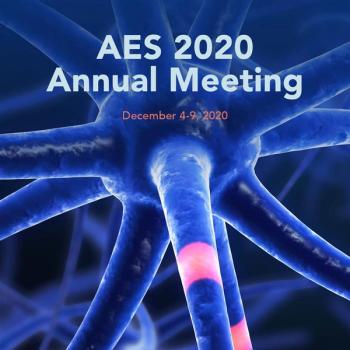
Data suggest that treatment-emergent adverse events with adjunctive brivaracetam increased in incidence by number of lifetime AEDs.

Victoria Johnson, Assistant Editor for GeneTherapyLive, joined the MJH Life Sciences team in October 2020, originally writing for NeurologyLive. Follow her on Twitter @VictoriaJNeuro or email her at [email protected].

Data suggest that treatment-emergent adverse events with adjunctive brivaracetam increased in incidence by number of lifetime AEDs.

The neurologist from Cleveland Clinic discussed perampanel’s unique mechanism of action.

Jude Savarraj, PhD, discusses the accurate performance of his team’s machine learning models in predicting subarachnoid hemorrhage outcomes.

The study also found that patients with PD that used telehealth for mental health services were less likely to prefer telehealth over in-office visits.

The observed increase in QOLIE-31 scores for patients with refractory disease was driven by increases on the energy-fatigue domain.

Valproic acid’s efficacy as a monotherapy is complicated by its previously demonstrated unsuitability for pregnant women.

Brian Frederick, PhD, discusses how the short life expectancy after diagnosis leads many patients with ALS to lose their lives before receiving disability benefits.

Biohaven executives remain optimistic about the slight but insignificant improvement observed in those with mild AD.

Researchers hope that R-loop modulation may hold potential in the future treatment of ALS.

If approved, adaptive DBS could be added to Medtronic’s Percept device, which was approved in June 2020.

Researchers developed and trained a random forest classifier that resulted in high precision and accuracy as a screening tool for those with mild cognitive impairment.

Researchers sought to redefine dichotomous classifications of MS and identified meaningful classifications.

Patients with SCD and schizophrenia specifically had increased risk of developing Parkinson disease later in life.

Olfactory impairment is indicative of rapid eye movement sleep behavior disorder, a prodromal symptom of Parkinson disease.

Source-based morphometry, a novel independent component analysis technique, was found to be useful in characterizing patterns of atrophy development.

The harmful association seen with antidepressants is complicated by their need in patients with HD and mood disturbance. There were also associations identified with alcohol and substance use.

NM was found to have a stable disease course and the most common classification was typical congenital.

New technology enables the collection and analysis of speech behaviors, but this requires an extensive database, which the ADDF seeks to help develop.

Including these agents for developmental and epileptic encephalopathies, the relatively young company has 5 programs under development to target rare neurological disorders.

Further associations with lowered risk of Parkinson were observed with BMI and coffee intake.

Patients with an early age of onset (AO) were also more likely to receive less effective first-line oral therapy than those with later AOs.

The FDA previously declined to approve de novo classification in April 2019.

No devices performed better than polysomnography, but the researchers believe they warrant further testing.

William Rosenfeld, MD, discusses the decreases his team observed in concomitant medication use with cenobamate in patients with focal seizures.

The EDSS inaccurately reported improvement rates while paralleling disability progression rates.

Men were observed to derive benefit from a Greek Mediterranean diet and women were found to generally adhere more closely to diet interventions than men.

The new American Academy of Sleep Medicine guidelines are the first to use the GRADE system of evaluating behavioral insomnia therapies.

Brain Scientific’s disposable EEG cap can be applied by any clinical staff member within 5 minutes.

Researchers found amyloid-β positron emission tomography imaging and dopamine transporter imaging to be useful in characterizing phenotypes of the neurodegenerative conditions.

There was no statistically significant difference between treatment-related adverse events in the SB623 stem cell and control groups.